Last week, I spoke with a prospective client (PC) who recently started giving her future and mortality a lot of thought. Her job required her to be around people who were victims of terrible tragedies. In response to whether she had her affairs in order, she mentioned that her wishes were written on a napkin. My first thought was to commend her on taking an active role in preparing for her family's future. My second thought was, "Oh my, what if someone wipes up a spill with that napkin. There goes her will." After expressing my dismay at how disposable her "estate planning document" was, I handed her my business card and suggested that we talk some more.
Why was I dismayed? She had done the responsible thing and written down her wishes, and as long as she kept her napkin in a locked box, things should be okay, right? Wrong! It isn't that easy. Many people handwrite or type their wills and put them away in a safe place. They feel good knowing that they've done it; they've protected their family from the future what-ifs. This is commendable, but this simple act isn't enough to create a valid will. Here's why.
Most states, including California, have strict execution requirements. In California, there are three types of wills — a holographic, or handwritten, will; a witnessed will; and a statutory will. Validity requirements are different for each type of will.
A holographic will must be signed and dated by the person creating it (the testator), but it does not need to be witnessed or notarized. All material parts of a holographic will must be in the testator's handwriting. So the "napkin will" from above is a holographic will. To be valid, the PC would have to sign and date it. It would also be a good idea that she have it witnessed, even if witnessing is not required. Having the will witnessed will help if there is a future litigation on the grounds of incapacity or undue influence. Her neighbor who saw her draft and sign her "napkin will" would be called upon to testify that she wasn't "crazy" when she decided to draft such an important document on a flimsy restaurant napkin. The neighbor would explain that the PC was feeling a little lazy after a Sunday dinner, and the napkin was the only paper within reach at the time.
I am being facetious, but my point remains. Having a holographic will witnessed will help clear up details of the execution that would otherwise be a mystery and serve as fuel for litigation by unhappy beneficiaries or other interested parties.
What if the PC were to type up her "napkin will"? Would signing and dating it be enough? In this instance, the typewritten will is no longer considered holographic. This is because the material portions of the will wouldn't be in the testator's handwriting, a requirement for a holographic will to be recognized. Therefore, in order for this new will to be valid, it would need to be witnessed (a witnessed will) and signed by two disinterested persons, in addition to it being signed and dated by the testator. A disinterested person is a person who does not inherit under the will. Having no interest under the will removes any bias from the witness' testimony in the event of future litigation.
If the PC decided she wanted something a little more official looking but did not want to go to an attorney, she could use the California "fill-in-the-blanks" Statutory will form. This will form can be found on the California Bar website. This form is for modest estates. It would allow the PC to leave her estate to her spouse or children and to also appoint guardians for her minor children, if necessary. And, like the witnessed will, the PC would need to invite at least two of her neighbors over for a Sunday dinner and a will execution where they would need to witness her signature and sign as well.
The PC took a step that at least 50% of Americans are not taking, or even thinking about taking, so she is commended. However, without the above information, her step would leave her in the same position as if she had not done anything. Without her signature, her "napkin will" is invalid.
You do not need an attorney to draft a will, but you do need to know the above information to make sure that your self-drafted will stands up in court. You have considered this step important enough to take, so do it right.
Get educated.
About the Law Office of Jan A. Meyer
The Law Office of Jan A. Meyer was founded in 2011 in Dana Point, California. It was established to provide clients with committed and compassionate estate planning services to assist with asset protection and strategic goals. Our law firm provides a personalized and cost-effective alternative to large law firms or self-guided online forms. At the Law Office of Jan A. Meyer, families and individuals are guided through a series of decisions to build a plan that ensures their financial and personal legacy are protected when they are no longer able to care for it. Learn more at www.danapointwills.com.
